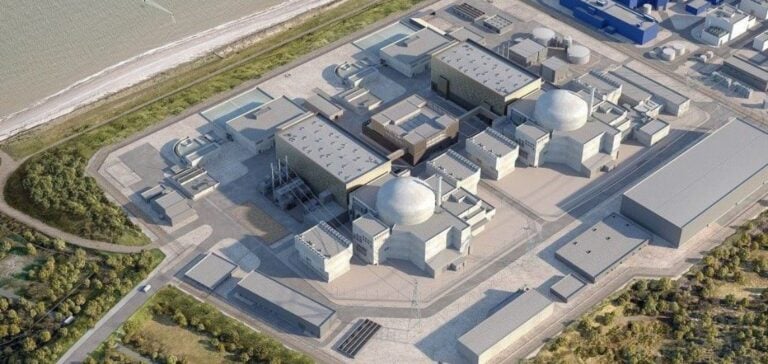Framatome, majority owned by EDF (80.5%) and partly by Mitsubishi Heavy Industries (19.5%), has announced its key role in the supply of nuclear heat generation and safety control systems for Sizewell C. These commitments also cover fuel fabrication for the two reactors and the maintenance required to operate the plant.
Reactor planning and design
Sizewell C is planned to integrate two EPR-type reactors producing 3.2 GW of electricity, enough to power around six million homes, similar to the design of the Hinkley Point C site in Somerset. Bernard Fontana, CEO of Framatome, expressed his pride in contributing to the UK’s 2050 carbon neutrality targets, highlighting the experience gained from the Hinkley Point C project.
Partnership development and project financing
Initially, EDF and China General Nuclear (CGN) had agreed in October 2016 to develop the Sizewell C project through to final investment decision, with EDF holding 80% and CGN 20%. However, Sino-British relations cooled, leading the British government to take a 50% stake in the project in November 2022, with an initial investment of GBP 679 million (USD 845 million), followed by additional funding of GBP 511 million in summer 2023.
Innovative financing strategies
The UK government has been exploring new funding models, such as the Regulated Asset Base (RAB) model, which allows consumers to contribute to the financing of new nuclear infrastructure during the construction phase. This marks a change from the previous system of contracts for difference, where income is only received once the plant is up and running.
In January, a further GBP 1.3 billion of government funding was approved for essential infrastructure works, and last month Sizewell C Ltd, mainly owned by the UK government, acquired the land for the new power station in agreement with EDF Energy.






















